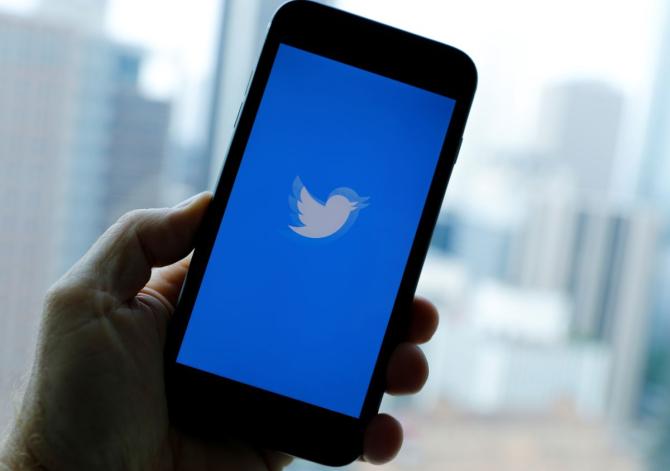The Karnataka high court on Friday dismissed a petition filed by Twitter Inc., challenging several blocking and take-down orders of the Ministry of Electronics and Information Technology, holding that the Centre has the power to block tweets and accounts.

Stating that Twitter's plea was devoid of merits, a single-judge bench of Justice Krishna S Dixit also imposed a whopping cost of Rs 50 lakh on the micro-blogging platform citing its conduct, and ordered that the amount be paid to the Karnataka State Legal Services Authority within 45 days.
The court further said the impugned orders have been implemented with a clandestine caveat of reserving the right to challenge, adding this is a 'classic case' of speculative litigation and therefore the petitioner is liable to suffer levy of exemplary costs.
"I am convinced with the contention of the Centre that they have powers to block tweets and block accounts. Your client was given notices and your client did not comply. Punishment for non-compliance is seven years imprisonment and unlimited fine. That also did not deter your client.
"You have not given any reason why you delayed compliance for more than a year. Then all of a sudden you comply and approach the Court. You are not a farmer but a billion dollar company," the court observed.
The 109-page judgement, which cited references from the US constitution and UK court judgments to vedic scriptures quoting 'Vasudhaiva Kutumbakam' verse from Mahopanishad, said, "This petition was heard for days together, keeping at bay worthier causes of native litigants who were waiting in a militant silence and in a long queue."
Reacting to the order, Union Minister for Communications and Information Technology(IT) Ashwini Vaishnaw said the law of the land must be followed.
'Hon'ble court upholds our stand. Law of the land must be followed,' he tweeted.
The Union Minister of State for Electronics and IT Rajeev Chandrasekhar said the verdict clearly lays down non-compliance to government order is not an option and all platforms, big or small, need to comply with Indian laws.
Twitter moving to a court against the government notice to block some accounts was 'part of the fiction' that company's former CEO Jack Dorsey had put out, he said.
Dorsey, who had quit as Twitter CEO, had alleged that the Indian government 'pressured' the company with threats of a shutdown and raids on employees if it did not comply with requests to take down posts and restrict accounts that were critical of the government over the protest by farmers against new farm laws in 2020 and 2021.
"In this particular case as you remember they (Twitter) were given a large number of directions under the law which they did not comply with and then when they were sent a legal notice they chose to go to the courts. This is part of the fiction that Mr Dorsey had also put out," Chandrasekhar told PTI on the sidelines of a Broadband India Forum event in Delhi.
"I am very glad that the court has today laid down very clearly that non-compliance is not an option regardless of where your jurisdiction is, or who you think your owner is. The platforms in India, all platforms big or small, Indian or foreign have to comply with the Indian law and the rules that are enacted under the law."
He said the government's relationship with the platforms is not adversarial and Ministry of Electronics and IT(MeitY) only insisted that the laws be followed and be complied with.
During the court hearing, the suspension of the account of former US President Donald Trump was also cited. The Additional Solicitor General had referred to the permanent suspension of the twitter account @realDonaldTrump.
The HC in its judgement touched upon this point and said, The above action of the petitioner (Twitter) and the reasons on which it is founded supports the case of the respondents (Union Government) that a direction or blocking of accounts as an extreme measure can be given and there is nothing unusual in that.
Twitter had challenged ten different 'blocking orders' issued by the Ministry between February 2, 2021 and February 28, 2022. The Government had directed the microblogging site to block 1,474 accounts, 175 tweets, 256 URLs and one hashtag, Twitter had claimed before the court while only challenging the orders pertaining to 39 of these URLs.
The Ministry had issued the orders under Section 69A of the Information Technology Act. Twitter, in its petition, however, claimed that the orders 'fall foul of Section 69A both substantially and procedurally'.
Twitter had claimed that as per 69A, the account holders had to be informed about taking down their tweets and accounts, but no notice was issued by the Ministry to these account holders.
The court said the judgement framed eight questions and only one of them; the locus standi to file the petition was answered in favour of Twitter while the rest of the questions have been answered against it. This includes the plea of Twitter to issue guidelines for exercise of Section 69A of the Information Technology Act.
"I have framed as many as eight questions. The first question is as to the locus standi which I have answered in your favour. The second question is whether powers under Section 69A are tweet-specific or it extends to closure of accounts also. The third one is non-communication of reasons; I have held against you."
"Next, no nexus between the reasons and grounds on which blocking can be done. That I have held against you. Then, no opportunity of hearing notice etc., that also I have held against you as you have participated in the hearings and have admitted in your plea. Then on the proportionality, whether the blocking should be period specific or they can indefinitely block. These aspects also I have held against you," the judge said.
"Then you asked me to lay down certain guidelines. I felt there was no need for guidelines as there were some directions in Shreys Singhal (vs Union of India, 2015) and two more judgments," the judge said.
On Twitter's plea for segregating objectionable tweets and innocuous ones, the court said, Petitioner's contention that the respondents ought to have segregated objectionable content at the tweet level and thereafter, resorted to tweet level blocking, is liable to be rejected since such an exercise is impracticable inasmuch as the mischievous originators of the information would designedly mix provocative tweets/illegal contents with the so called innocuous ones.
Another major contention of Twitter was that notices were not issued to account holders before their accounts/tweets were blocked.
To this, the court said, Petitioner being an intermediary, cannot invoke Rule 8(1) as a launchpad of its tirade, when apparently the said Rule is promulgated to protect the interests of only users of account and not others.










 © 2025
© 2025